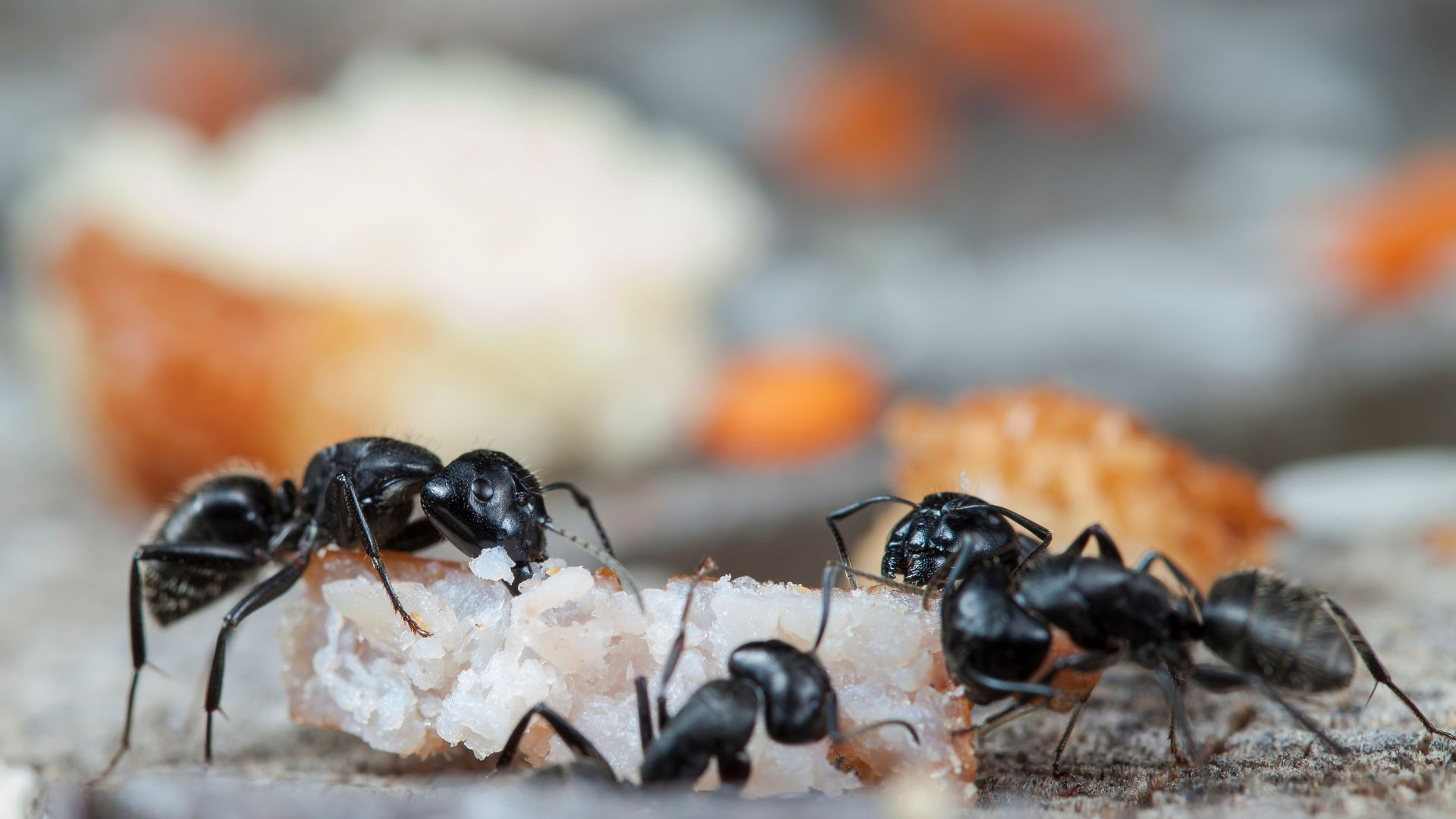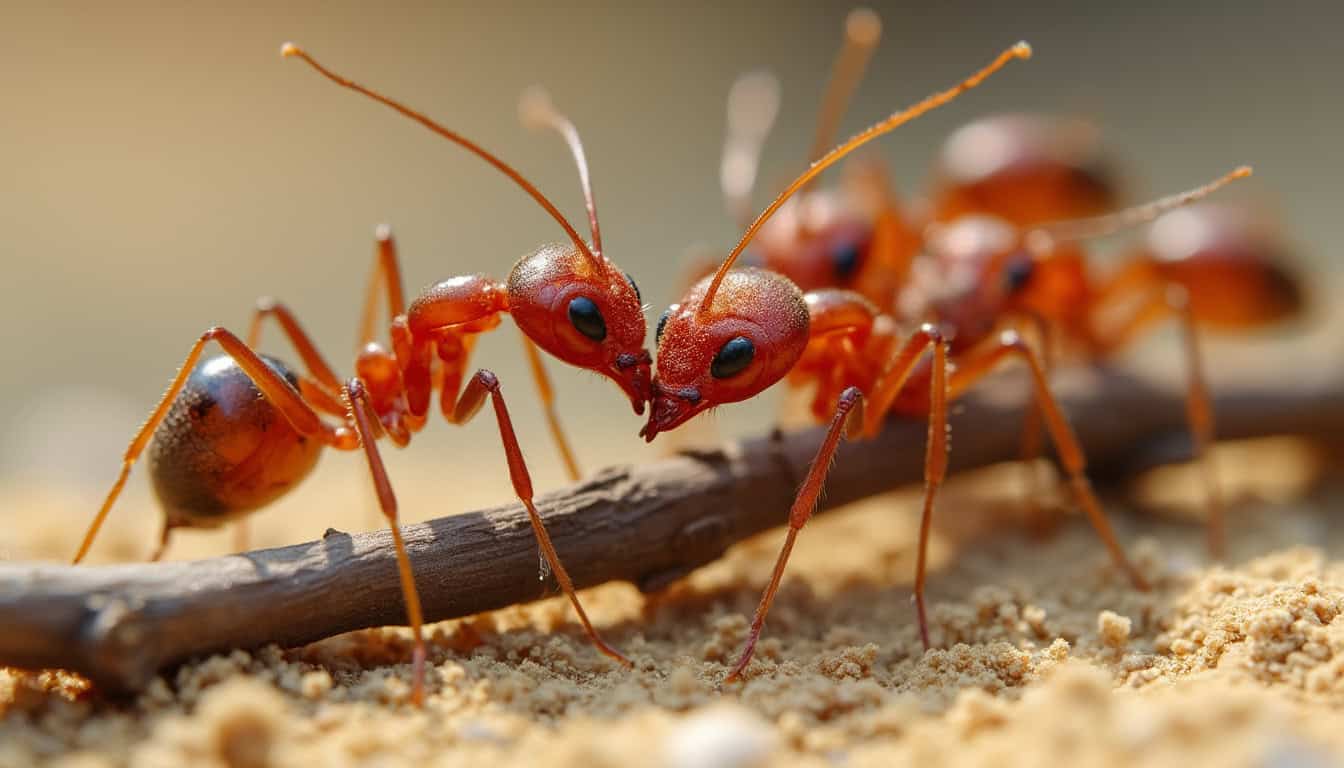Full Ant Control: Strategies and Services to Defeat Ant Issues
Full Ant Control: Strategies and Services to Defeat Ant Issues
Blog Article
Ecological Influence of Bug Control: Balancing Efficiency With Sustainability
The ecological impact of parasite control is a crucial problem that requires a fragile equilibrium between achieving performance in making sure and managing pests sustainability of our environments. As we strive to shield our plants, homes, and health from the risks presented by insects, the approaches we employ can accidentally damage the atmosphere. From the use of dangerous chemicals that leak into our soil and water to the unexpected repercussions on non-target varieties, the consequences of standard insect control methods are far-reaching. There are emerging methods that provide hope for a more sustainable technique to pest administration. These remedies not only purpose to resolve the prompt insect problems yet also consider the long-lasting health of our planet.
Hazardous Chemicals in Bug Control
The usage of harmful chemicals in pest control positions considerable ecological and health risks that warrant mindful factor to consider and mitigation techniques. Herbicides, pesticides, and insecticides are generally made use of to eradicate bugs, but their widespread application can result in unintentional effects. These chemicals can pollute soil, water sources, and the air, impacting not just the targeted bugs but likewise advantageous insects, wild animals, and human beings.

To address these dangers, integrated parasite management (IPM) strategies are being advertised as a more sustainable choice. IPM includes a combination of approaches such as biological control, habitat control, and the targeted use of chemicals as a last hope (ant control kernersville nc). By adopting an alternative strategy to pest control, we can minimize the ecological and wellness influences connected with damaging chemicals while properly taking care of pest populaces
Influence on Non-Target Variety
Taking into consideration the unexpected consequences of bug control approaches, the effect on non-target types is an important facet that calls for complete assessment. While pest control procedures aim to target details parasites, other microorganisms in the community might be unintentionally influenced. Non-target varieties, including useful insects, birds, creatures, and also plants, can suffer indirect or straight injury from pesticide applications or organic control approaches.
Pesticides created to battle a certain bug bug may harm pollinators like bees or natural killers such as ladybugs. Biological control agents, if not species-specific, can position threats to unintended targets, disrupting the environmental balance.
To reduce the effect on non-target varieties, integrated parasite management (IPM) strategies that emphasize an alternative technique to pest control are recommended. These techniques focus on the use of eco-friendly practices, minimizing damage to useful organisms while efficiently handling pest populations. Conducting thorough risk analyses and monitoring the end results of parasite control efforts are essential actions in guarding non-target varieties and promoting general community wellness.
Dirt and Water Contamination
Unintentional ecological effects of parasite control methods expand beyond impacting non-target varieties, with substantial implications for soil and water contamination. Chemicals, herbicides, and chemical fertilizers utilized in pest control can leach into the soil and infect groundwater, posturing a threat to both earthbound and marine ecosystems. Dirt contamination can disrupt the equilibrium of microbes crucial for nutrition cycling and plant growth, bring about decreased soil fertility and efficiency. Furthermore, these chemicals can continue the atmosphere for extended durations, collecting in the dirt and potentially getting in the food cycle.
Water contamination is another critical problem linked with parasite control methods. To reduce dirt and water contamination from parasite control tasks, incorporated bug administration techniques that focus on sustainability and lessen chemical inputs are important.
Air Pollution From Chemical Use
Direct exposure to airborne pesticides during farming applications presents a significant problem for air contamination control steps. They can volatilize into the air and form unpredictable natural compounds (VOCs) and other air-borne toxins when chemicals are splashed onto crops - ant control. These chemicals can contribute to the formation of ground-level ozone, a major element of smog that can have damaging results on human health and wellness, crop efficiency, and general air top quality. In addition, chemical drift, where chemicals are brought by the wind to unexpected areas, can result in the contamination of close-by ecological communities and water bodies.

Techniques for Sustainable Pest Control
In the world of farming techniques, executing sustainable bug control strategies is vital for maintaining eco-friendly balance and securing crop yields. Sustainable pest control stresses the usage of eco-friendly approaches to handle insect populaces efficiently while reducing damage to non-target microorganisms and communities. Integrated Pest Administration (IPM) is a widely adopted technique that incorporates biological, social, physical, and chemical control approaches to attain long-term parasite monitoring remedies.
One trick technique in sustainable parasite control is promoting biodiversity within agroecosystems. By improving all-natural enemies of bugs, such as parasitoids and predators, farmers can reduce here are the findings the need for synthetic pesticides. Plant turning and diversification are additionally reliable strategies to interfere with pest life process and develop less beneficial problems for insects to grow. Furthermore, making use of pest-resistant crop selections and employing strategies like catch cropping can aid minimize insect pressure without counting heavily on chemical interventions. Eventually, by incorporating these sustainable pest control methods, farmers can accomplish an equilibrium between pest management performance and ecological stewardship.
Final Thought
Finally, the ecological influence of pest control techniques must be carefully thought about to balance performance with sustainability. Hazardous chemicals used in parasite control can lead to dirt and water contamination, air contamination, and damage non-target types - termite control. It is essential to implement lasting bug control techniques to minimize these adverse impacts on the atmosphere and promote a much healthier environment for future generations
By taking on a holistic technique to pest control, we can decrease the environmental and wellness effects associated with hazardous chemicals while effectively taking care of pest populaces.

To alleviate the air pollution caused by pesticide usage, it is important to take on incorporated parasite management strategies that prioritize the use of non-chemical parasite control techniques, such as crop rotation, all-natural predators, and resistant crop ranges. Sustainable parasite control stresses the use of ecologically pleasant techniques to handle bug populaces effectively while reducing damage to non-target organisms and communities. Integrated Parasite Monitoring (IPM) is an extensively taken on method that incorporates biological, cultural, physical, and chemical control methods to achieve lasting insect administration services.
Report this page